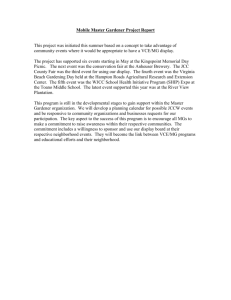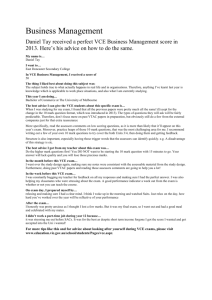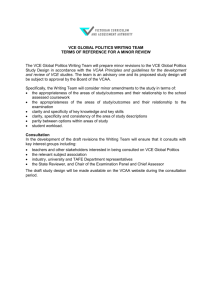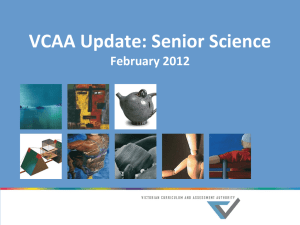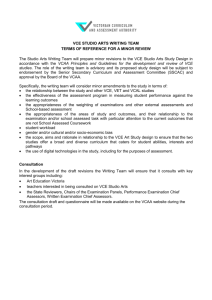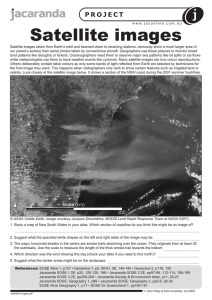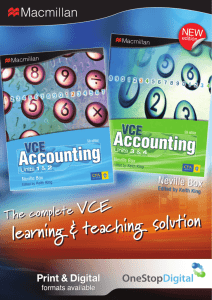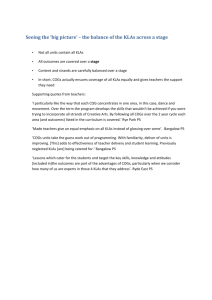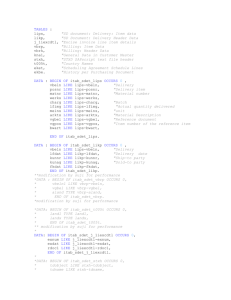Bruce Tamagno CV synopsis - Visionary Design Development
advertisement
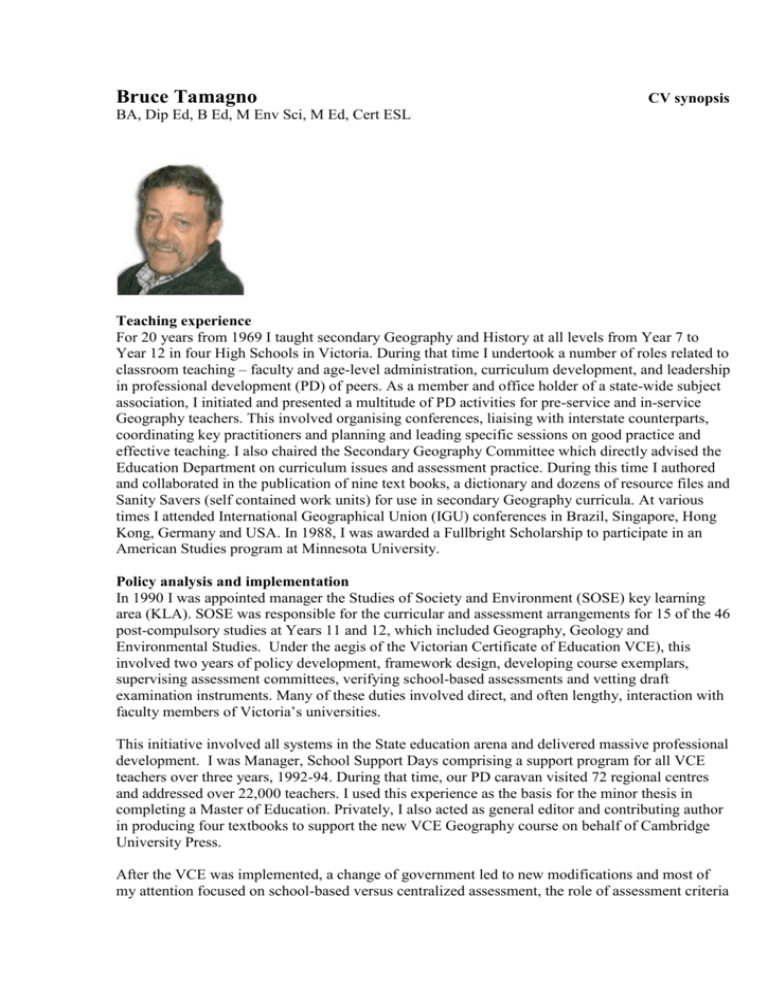
Bruce Tamagno CV synopsis BA, Dip Ed, B Ed, M Env Sci, M Ed, Cert ESL Teaching experience For 20 years from 1969 I taught secondary Geography and History at all levels from Year 7 to Year 12 in four High Schools in Victoria. During that time I undertook a number of roles related to classroom teaching – faculty and age-level administration, curriculum development, and leadership in professional development (PD) of peers. As a member and office holder of a state-wide subject association, I initiated and presented a multitude of PD activities for pre-service and in-service Geography teachers. This involved organising conferences, liaising with interstate counterparts, coordinating key practitioners and planning and leading specific sessions on good practice and effective teaching. I also chaired the Secondary Geography Committee which directly advised the Education Department on curriculum issues and assessment practice. During this time I authored and collaborated in the publication of nine text books, a dictionary and dozens of resource files and Sanity Savers (self contained work units) for use in secondary Geography curricula. At various times I attended International Geographical Union (IGU) conferences in Brazil, Singapore, Hong Kong, Germany and USA. In 1988, I was awarded a Fullbright Scholarship to participate in an American Studies program at Minnesota University. Policy analysis and implementation In 1990 I was appointed manager the Studies of Society and Environment (SOSE) key learning area (KLA). SOSE was responsible for the curricular and assessment arrangements for 15 of the 46 post-compulsory studies at Years 11 and 12, which included Geography, Geology and Environmental Studies. Under the aegis of the Victorian Certificate of Education VCE), this involved two years of policy development, framework design, developing course exemplars, supervising assessment committees, verifying school-based assessments and vetting draft examination instruments. Many of these duties involved direct, and often lengthy, interaction with faculty members of Victoria’s universities. This initiative involved all systems in the State education arena and delivered massive professional development. I was Manager, School Support Days comprising a support program for all VCE teachers over three years, 1992-94. During that time, our PD caravan visited 72 regional centres and addressed over 22,000 teachers. I used this experience as the basis for the minor thesis in completing a Master of Education. Privately, I also acted as general editor and contributing author in producing four textbooks to support the new VCE Geography course on behalf of Cambridge University Press. After the VCE was implemented, a change of government led to new modifications and most of my attention focused on school-based versus centralized assessment, the role of assessment criteria and continued provision of professional development. This involved changes to both content and assessment and required new strategies to provide professional development to teachers - satellite broadcasts, video-conferencing, government to school WAN-SOF net and the use of light aircraft to access teachers in rural Victoria. By the middle 1990s, the VCE was in reaccreditation phase and so, a review of all studies and their assessment regimes was implemented. During this period, Board personnel also sat on Industry Training and Accreditation Boards (ITABs). My involvement on the Hospitality, Tourism and Personal Services ITAB over three years acquainted me with a wide variety of training mileu and associated assessment tasks. I acted as chairman of the ITAB in 1999. Throughout the decade, changes in Victoria were being introduced against a backdrop of federal initiatives, in particular the National Statements and Profiles. Perspectives such as sustainability, environment and citizenship were included as the purview of SOSE and it devolved on my team to provide advice for implementation in Victoria’s schools (an involvement which resulted in being invited to lunch at Government House). Another initiative featured the National Key Competencies and the Board of Studies devoted considerable time in auditing work requirements (VCE) and learning outcomes (CSF) for competency coverage, writing advice on implementing key competencies for schools and embedding them in the newly formulated VET studies then being designed. Soon after, State education policy introduced the Curriculum and Standards Framework (CSF) which charged the KLAs with P-10 curricular and assessment arrangements. The VCE experience of policy outline, consultation, framework design and implementation proved an effective model to liaise and communicate with 1600 primary schools and 800 secondary schools. Three years later, refinements to policy based on practical experience and a review of the CSF led to a similar process being repeated. As SOSE manager, I oversaw and led the writing team in producing four books of advice to all SOSE teachers in all schools across Victoria. Towards the end of the decade, I was appointed State manager of the CSF and coordinated all advice from across the eight KLAs to schools. This also involved managing further publications, developing specific advice on objective assessment, liaising with professional psychometricians and publishers for five selected KLAs, and compiling a comprehensive chart locating and detailing suitable teaching methods and digital operations to introduce Information and Communication Technologies for the eight KLAs, P-10. I retired from full time work in 2002 and have spent time since then travelling in Asia, Europe, the Middle East and Africa. From time to time I have worked as a publishing consultant, writer, researcher and project manager in Australia, The Netherlands and France. In 2007, I attended a five day conference in Lucerne, Switzerland and commented on the final draft of the Lucerne Declaration, a document drawn up for the UN to formalise the IGU’s policy on Geographical Education for Sustainable Development. I have also been involved in establishing and seeking ongoing support for Trees – A School for Needy Children in Ethiopia and working as a volunteer in social organisations and donkey sanctuaries. Bruce Tamagno August 2010
